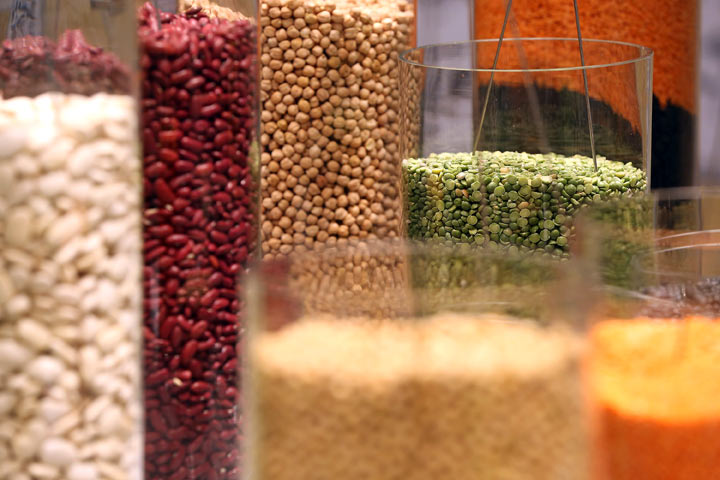TORONTO – Not a fan of beans, lentils and chickpeas? New Canadian research might make you reconsider.

Just a single serving a day of these pulses can cut down on bad cholesterol by as much as five per cent over the course of six weeks and decrease your risk of heart disease, St. Michael’s Hospital scientists say in a new study.
They aren’t labelled as cholesterol-fighting foods the same way as oats, psyllium, barley or nuts, however. This is why Dr. John Sievenpiper decided to conduct a review of beans, peas, chickpeas and lentils and their effect on cardiovascular health. He says that so far, single pieces of evidence in favour of them have been weak.
“Pulses are generally considered healthy, but they’re not traditionally part of current guidelines,” Sievenpiper said.
“They have a lot of amazing things in them. They are a whole food, they have wonderful vitamins and minerals – magnesium, calcium, sticky fibres that lower cholesterol, plant protein, a low glycemic index,” Sievenpiper said. Consuming more pulses could also cut down on trans fats or processed meat because you’re reaching for plant protein over animal protein.
In the research, Sievenpiper and research coordinator Vanessa Ha conducted a meta-analysis of more than 3,000 studies. They narrowed down their search to 26 studies that looked at any benefits pulses had to offer to 1,037 people over the course of at least three weeks.
The review of the nearly two dozen studies suggests that a single serving of pulses a day – about 130 grams or three-quarters of a cup – is enough to lower LDL cholesterol by five per cent. That would translate into a five or six per cent reduction in risk of heart disease.
- Life in the forest: How Stanley Park’s longest resident survived a changing landscape
- Bird flu risk to humans an ‘enormous concern,’ WHO says. Here’s what to know
- Roll Up To Win? Tim Hortons says $55K boat win email was ‘human error’
- Mental health support still lacking 4 years after mass shooting: Nova Scotia mayor
Sievenpiper called the findings “significant.”
Oats, plant sterols in margarine, soy, nuts and other products offer the same benefits, yet pulses haven’t received the same Health Canada and FDA approval claims.
“Our study can hopefully influence those guidelines so they can potentially consider pulses alone as a viable way of lowering bad cholesterol and improving cardiovascular risk,” he said. That means official health organizations could approve and promote pulses to those with or at risk of heart disease. Beans, chickpeas and lentils could have labels that remind consumers of their cholesterol-lowering properties, too.
READ MORE: What you should be eating to lower your blood pressure
Sievenpiper suggests that Canadians could increase the cholesterol-lowering benefits by building their diets around these groups of foods. Have some oatmeal in the morning, nuts as a snack and bean salad for lunch, for example. Each food would take on about a five per cent decrease in bad cholesterol.
His research is one in a series of findings on pulses: blood pressure, blood sugar levels, body weight and cholesterol were all studied in his Canadian Institute for Health Research-funded project. The research is slowly being trickled out.
Right now, Canadian-gathered data suggests that only 13 per cent of the country consumes pulses on any given day. Canadians would have to more than double their consumption to reach the suggested target.
READ MORE: What’s the best way to cook vegetables? Steaming, study says
“Pulses are a superfood as they offer a lot of different potential benefits for people,” he said.
So why haven’t they joined the likes of kale, blueberries or goji berries?
“It’s a very unromantic food,” Sievenpiper guessed. Legumes have been tied to flatulence, bloating and discomfort, but it’s not necessarily true, he said. Most people in the studies they scoured “acclimatize” to it.
Canada is also one of the world’s largest producers of pulses. It’s a $2-billion industry with farmers from coast to coast, Sievenpiper said.
“It’s a great opportunity to support Canadian farmers, the Canadian industry and to eat more locally,” he said. Pulses are also inexpensive.
READ MORE: Some of the worst foods for your heart’s health
The full findings were published Monday in the Canadian Medical Association Journal.
carmen.chai@globalnews.ca
Follow @Carmen_Chai


Comments